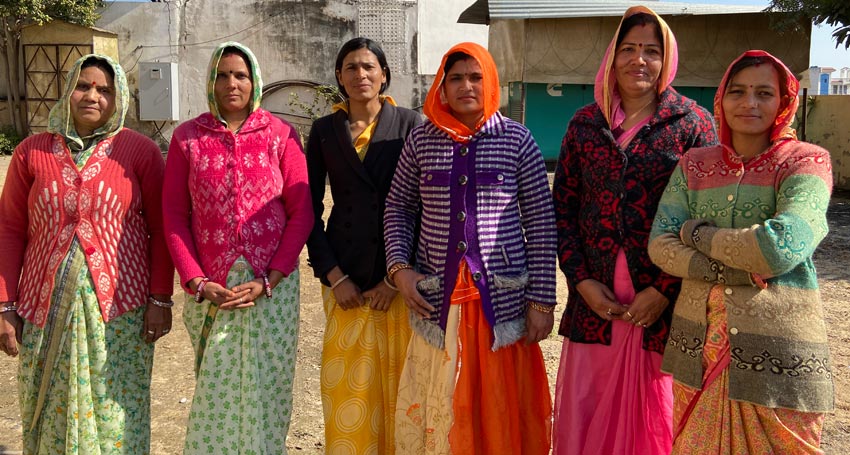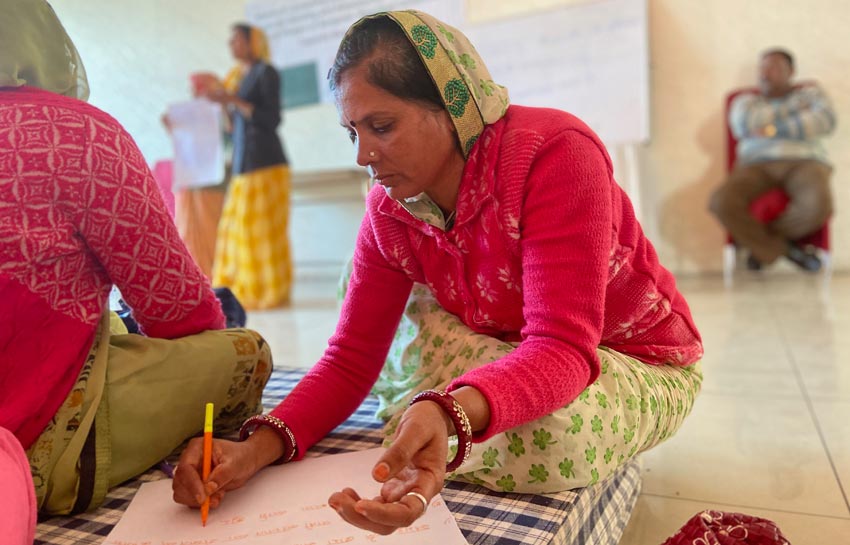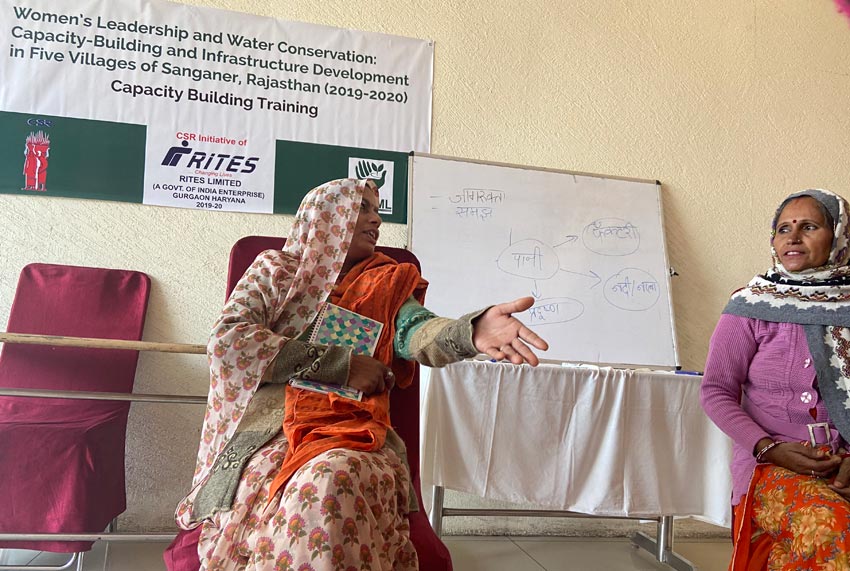Basic Gender Trainings with 25 Self Help Group Women from 5 villages in Sanganer Rajasthan
The Gender, Water and Climate Change team undertook a brief two day visit to Sanganer over the weekend of January 11th – 12th to conduct the basic training with 25 women from multiple Self-Help Groups in the project specific villages (Shyosinghpura, Rampura Unti, Jhund, Bankhrota Khurd, Annopura). The training was a success, and we are grateful to our funding agency, RITES Limited for their generous support in this endeavour.


The basic training (a precursor to more intensive technical trainings) aims to provide the women with basic knowledge on a variety of issues including gender, Self-Help Groups (SHGs) roles and responsibilities, and basic linkages between gender and water, in addition to a brief understanding of climate change and the rainwater cycle. The purpose of the training is to prepare the women to undertake community based development projects, through their SHGs. We prepare the women on the proposal writing process, and make them aware of the government funds and schemes available. In this sense, the basic trainings function as a means to empower women by making them water-leaders in their communities. The idea is to create a system of sustainable development, wherein projects and constructions are designed and led by the community members (specifically women) themselves.


During our two day visit, we brought together 25 women from 16 SHGs, from our 5 project villages. The two-day residential program, saw women engage in a variety of team-building exercises with members from their own villages and SHGs; and networking and collaborative activities with women from other villages.
The whole team of trainers and participants are now connected to each-other through a WhatsApp group, s that daily updates and information can be shared for immediate discussions and support.


We look forward to our next training, where we will engage with the more technical aspects of water conservation and related traditional infrastructure. This training will be practical, and hands-on, as we intend to visit an “ideal village” for field visits, and site-specific context.


Stay connected with us on social media, to read more about our project!




